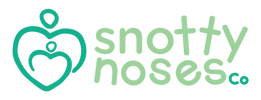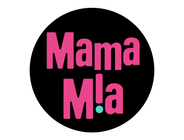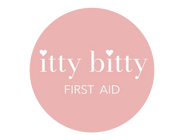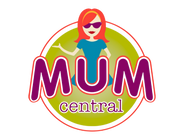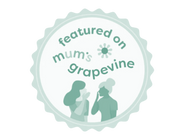We've all been there, you think that your baby's sleep is on track and then it suddenly gets worse, but why?
There are a number of reasons to explain a tricky pattern of sleep.
✦ Look at the 24-48 hour period before sleep patterns got worse and see if there was anything different or strange which is contributing to disruption. Has there been a general change in day routine? Any new foods? A change in formula? Unusual nappy changes?
✦ Is illness or teething a factor? Remember, around 3-4 months babies start getting ready for solids and they'll start putting things in their mouth and tasting things, and a lot of parents confuse this for teething.
✦ A disrupted night sleep can be quickly followed by the onset of a runny nose, so have a battery powered snot sucker in the cupboard ready to use at the first sign of a cold.
✦ Depending on the age of your baby, look at their nap routine. If they're in a transition period, where they have to reduce the number of day naps, then this could have an affect on night-time sleep too. The need for 4 day naps, down to 3, down to 2 and then down to only 1 day nap is a tricky transition that happens throughout the first 18 months.
✦ Be aware of the 4 month Sleep Regression, where your baby's ability to fall asleep and how they fall asleep will directly affect how long they will be able to sleep. So, look at the way your baby is going to sleep and their ability to fall asleep and you may have to make some tweaks. Check your baby is not relying too heavily on a parent-controlled sleep association such as rocking, co-sleeping or feeding to sleep, as the patterns set up now will have roll on effects for months or years to come.
The first 12 months of a baby's life is a time of tremendous growth and change. Just when you think their routine is working well, so many of their needs change, as a result of physical, emotional and cognitive development. It's an exciting time, but also exhausting.
Establishing a familiar sleep environment can help parents navigate these challenges, and remember, it won't last forever. We would recommend using Hush Vaporiser from birth (tap water from birth, essential oils added from 3 months). The built in light therapy, sound therapy, aromatherapy and purified mist creates the perfect, healthy sleep environment. As babies are obligate nasal breathers, it also assists breathing through the temperate humidified mist, without creating steam or condensation.
A swaddle, cuddle blankie and block out blinds are also recommended for both day and night sleeps.
Age-appropriate nap times and bedtimes and placing your baby to bed tired, drowsy but still awake, gives them the gift of learning to fall asleep and stay asleep, in a calm and peaceful way.
Ultimately, it's important to look at the whole "eco-system" of sleep - which covers the environment your little one is sleeping in, recommended amount of sleep for their age group, and the way you balance sleep in a 24 hour period, with the right amount and duration of day naps, which leads into a successful night sleep. Too little sleep means your babe risks being overtired and fractious. Too much sleep means your little one is not sufficiently tired for the next sleep session, and will find it hard to settle. Each piece of the puzzle may need a little tweak from time to time, as your babe grows and changes. More advice of sleep timings is available at Little Ones.
Learn more about HUSH here...


